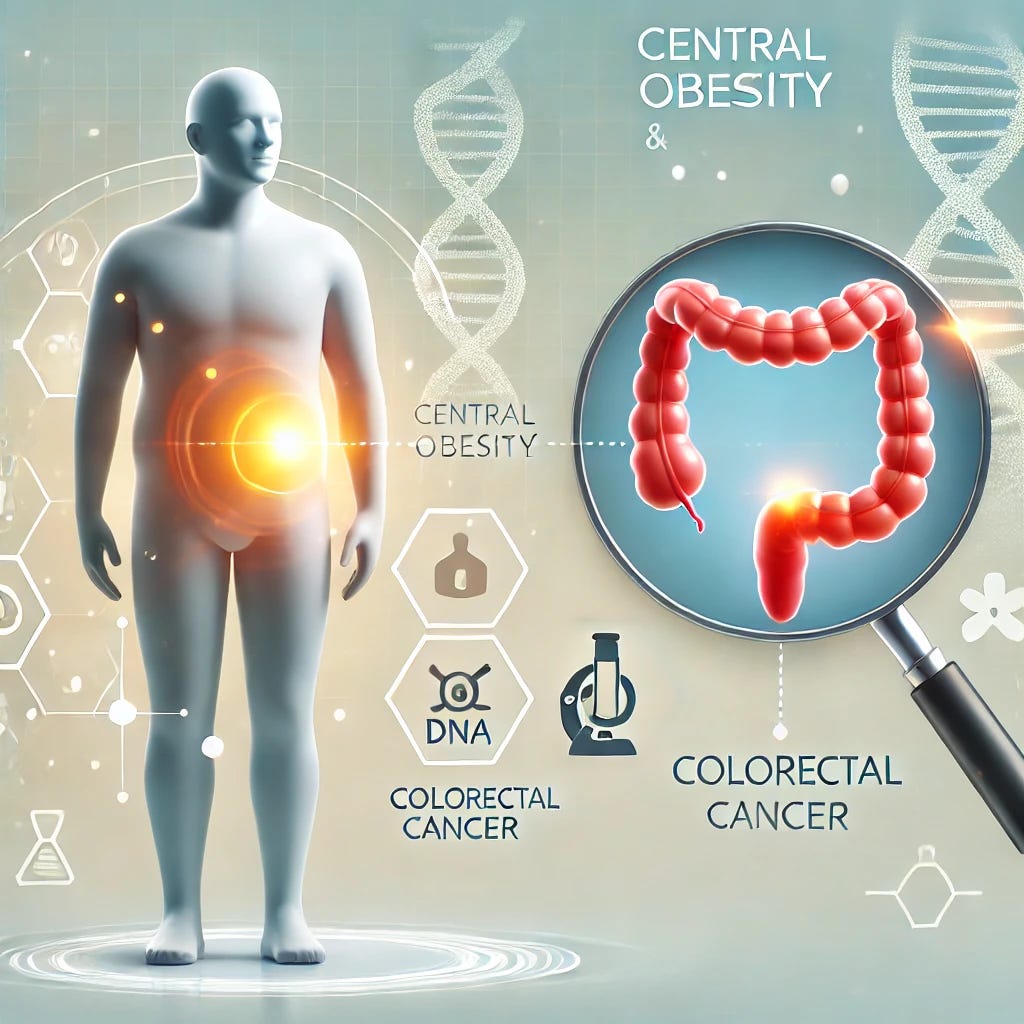Belly Fat as a Better Predictor of Colorectal Cancer Risk
Exploring the stronger link between central obesity and colorectal cancer compared to BMI.
Topline
A recent study reveals that waist-to-hip ratio (WHR) and waist circumference (WC) are stronger predictors of colorectal cancer (CRC) risk than body mass index (BMI), emphasizing the importance of assessing central obesity in clinical practice.
Study Details
This study, led by researchers at the German Cancer Research Center, explored the associatio…
Keep reading with a 7-day free trial
Subscribe to Just Healthcare to keep reading this post and get 7 days of free access to the full post archives.


